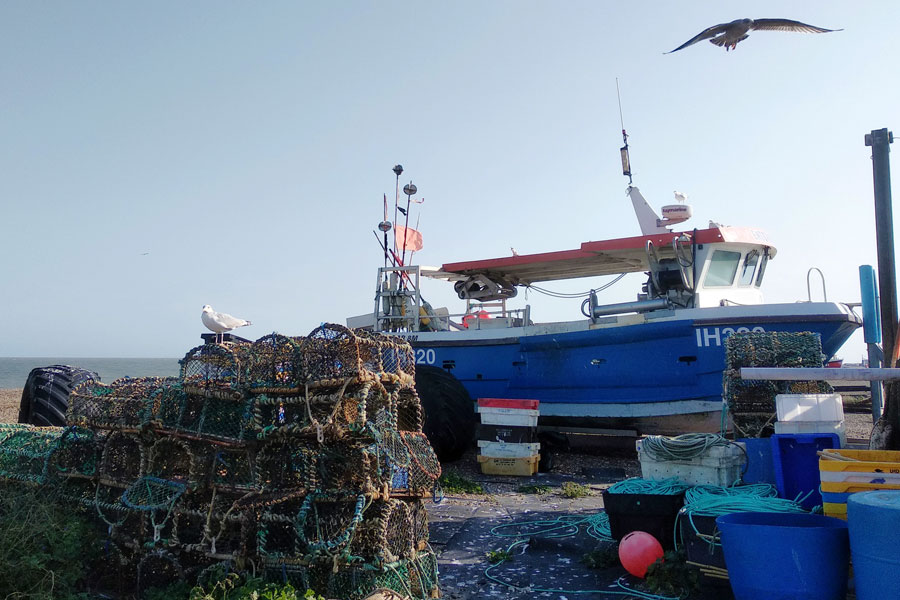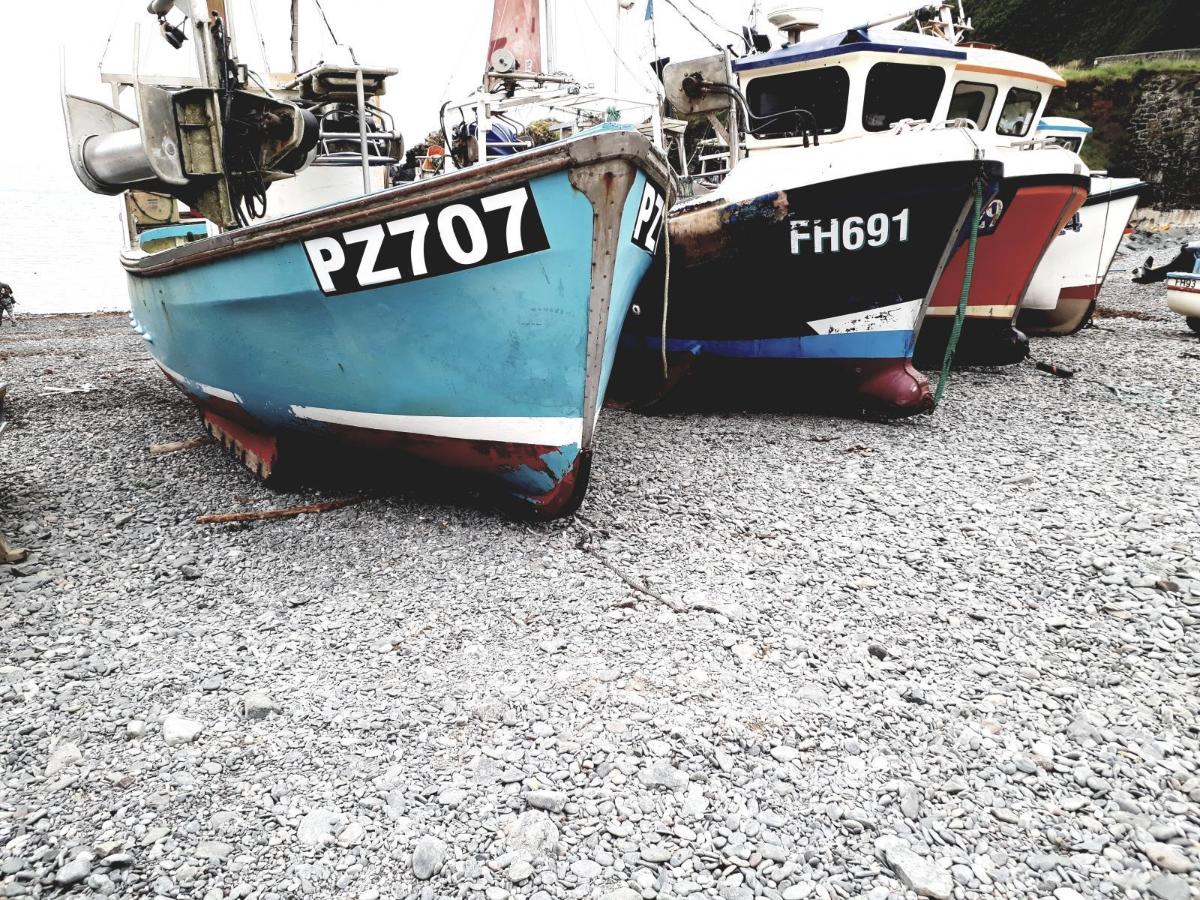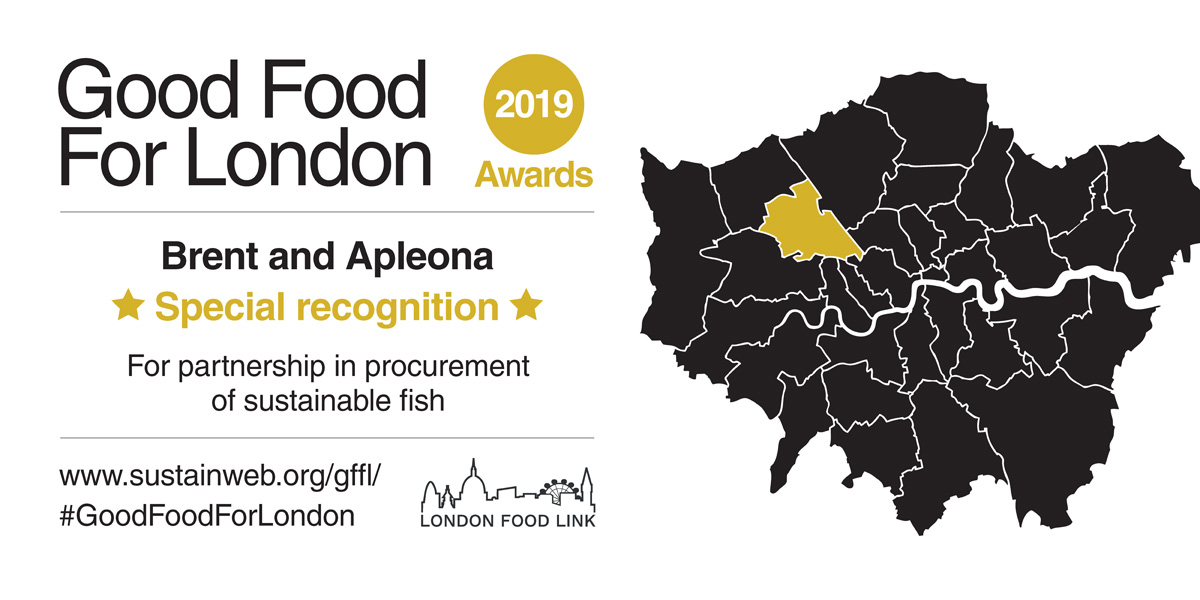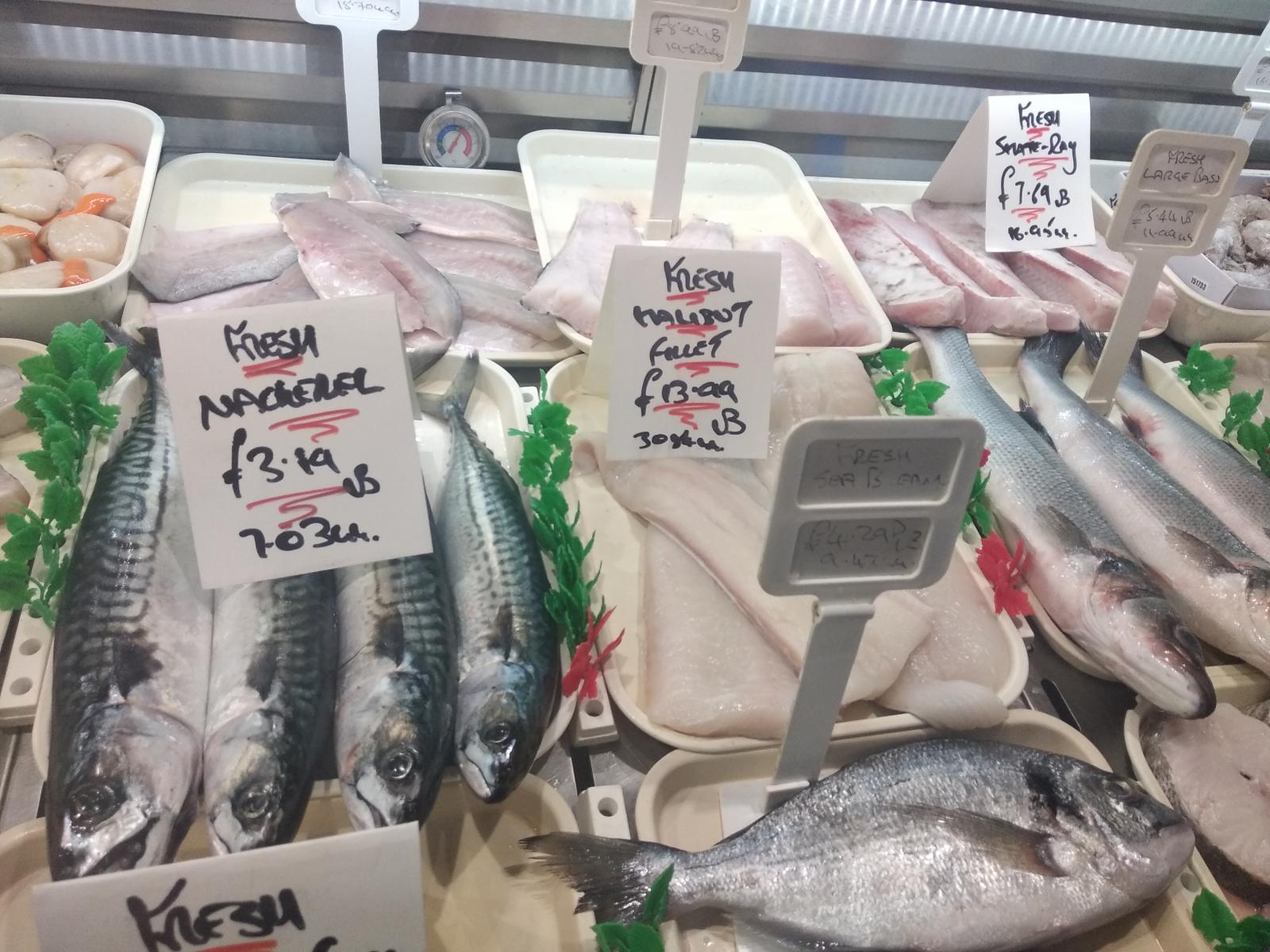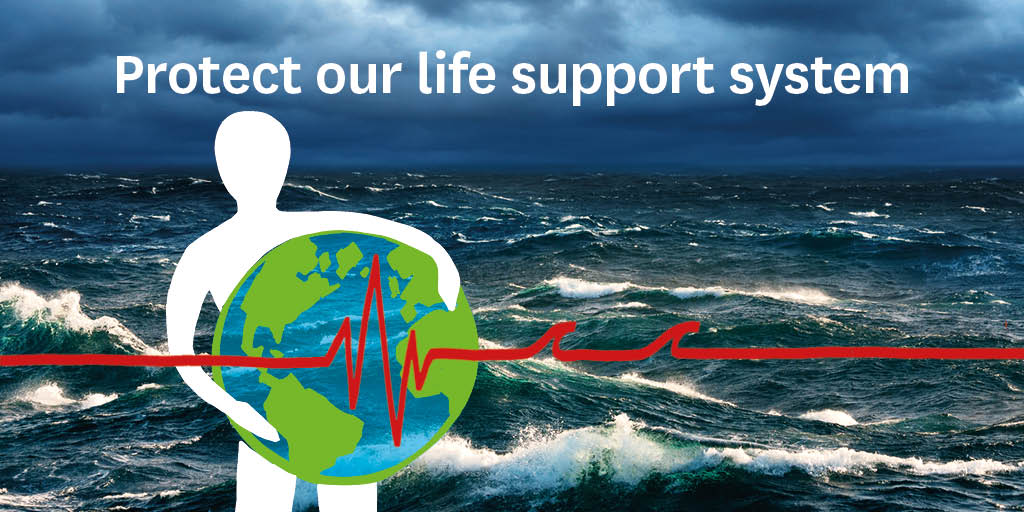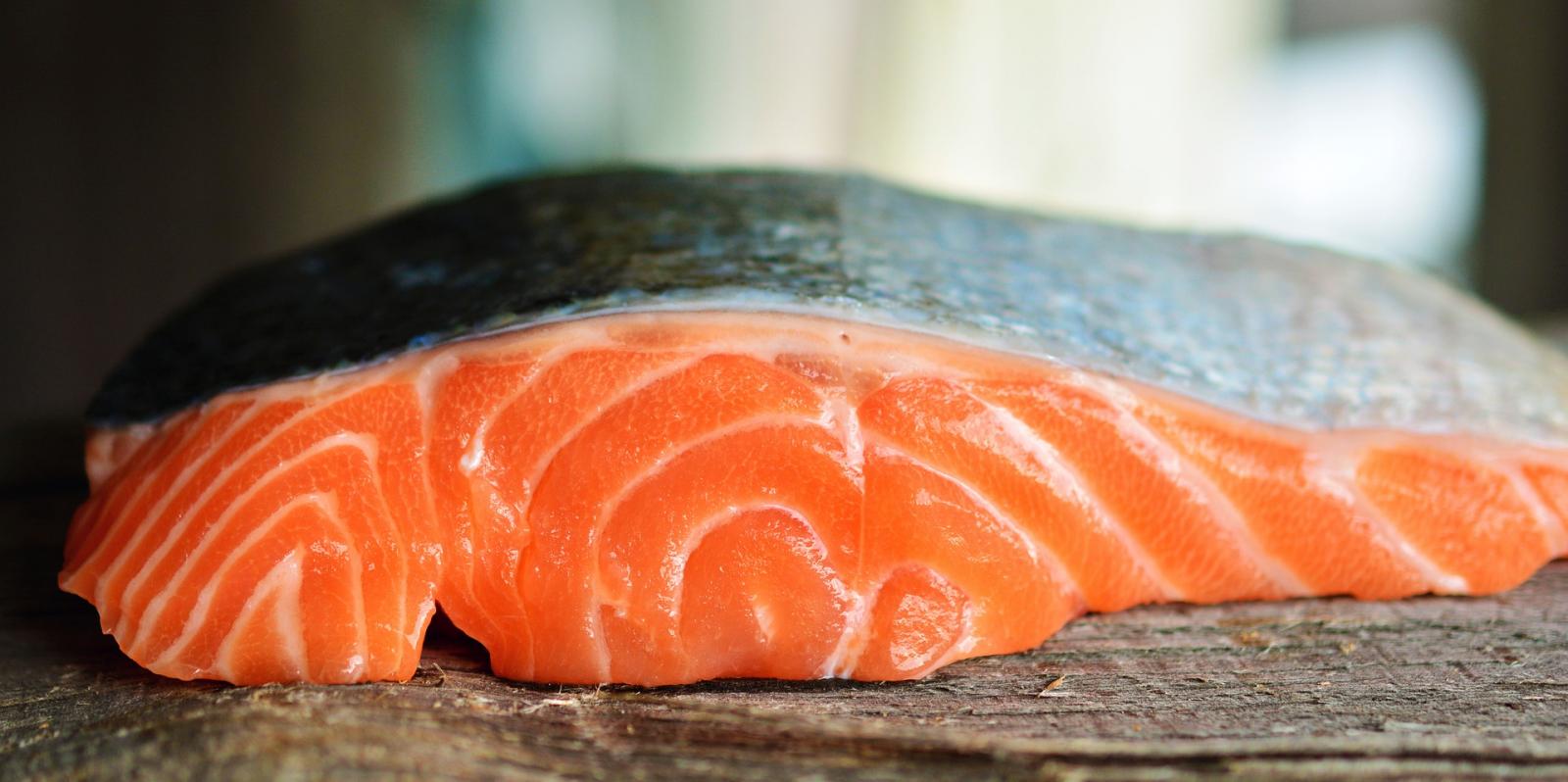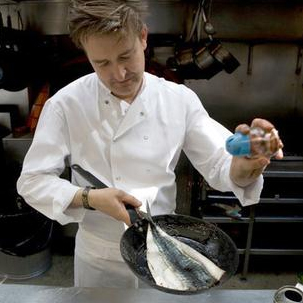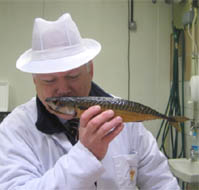 Fifty chefs and caterers that serve food to MPs, civil servants, the police, prisoners and prison staff have been trained in how to buy and cook sustainable fish.
Fifty chefs and caterers that serve food to MPs, civil servants, the police, prisoners and prison staff have been trained in how to buy and cook sustainable fish.
New compulsory food standards for government departments were introduced in June 2011 [1], including a commitment to use only demonstrably sustainable fish. These standards cover one third of public institutions in the UK and are the same sustainable fish standards being pioneered by caterers for the London 2012 Olympic and Paralympic Games. The UK’s food and farming minister Jim Paice stated that these standards are intended to send “a clear message to the wider public sector to take the same action”. Caterers and contract managers now need to have the knowledge and skills to adopt a fully sustainable fish policy, and by doing so help conserve precious marine life and promote reliable livelihoods in fishing for years to come.
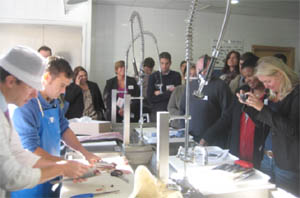 Fifty caterers attended a free training session in November 2011 at Billingsgate Seafood Training School, organised by Sustain’s Good Food on the Public Plate project [2], the Sustainable Fish City campaign [3], and in collaboration with Good Catch [4]. Attendees including chefs from the Houses of Commons and the Metropolitan Police, managers from Her Majesty’s (HM) Prison Service, HM Treasury and the Department of Food and Rural Affairs.
Fifty caterers attended a free training session in November 2011 at Billingsgate Seafood Training School, organised by Sustain’s Good Food on the Public Plate project [2], the Sustainable Fish City campaign [3], and in collaboration with Good Catch [4]. Attendees including chefs from the Houses of Commons and the Metropolitan Police, managers from Her Majesty’s (HM) Prison Service, HM Treasury and the Department of Food and Rural Affairs.
Jon Walker from the Sustainable Fish City campaign commented: “Mandatory standards for one third of the public sector are a huge step forward. We also trained chefs from some of the other companies who provide catering to the remaining two-thirds of the public sector. The training has proved that individual chefs and caterers understand the issues and want to facilitate change. However, government intentions for the standards to spread to the wider sector voluntarily are at best optimistic, and at worst will leave vital improvements to fish sustainability only to chance. The best way to support sustainable fishers and protect the marine environment would be for government to extend the sustainable fish rules to all catering in all public institutions.”
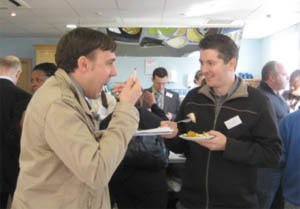 The training day started for with a 6.30am tour of Billinsgate seafood market, led by market inspectors and CJ Jackson from the Billinsgate Seafood Training School. This was followed by presentations on why the new Government Buying Standards are so important. Presentations highlighted some of the more destructive fishing and farming techniques, such as Fish Aggregation Device purse seine nets for tinned tuna. Advice included what questions caterers should ask suppliers, how to exclude endangered fish species reliably, a framework for implementing a sustainable fish policy and solutions such as Marine Stewardship Council chain of custody certification that helps caterers to buy and promote demonstrably sustainable fish.
The training day started for with a 6.30am tour of Billinsgate seafood market, led by market inspectors and CJ Jackson from the Billinsgate Seafood Training School. This was followed by presentations on why the new Government Buying Standards are so important. Presentations highlighted some of the more destructive fishing and farming techniques, such as Fish Aggregation Device purse seine nets for tinned tuna. Advice included what questions caterers should ask suppliers, how to exclude endangered fish species reliably, a framework for implementing a sustainable fish policy and solutions such as Marine Stewardship Council chain of custody certification that helps caterers to buy and promote demonstrably sustainable fish.
Species identification and knife skills followed as Adam Whittle from the Billingsgate Seafood Training School put the chefs through their paces with more sustainable species. Swapping from overexploited species was an important theme for the day, and included a blind tasting of Cornish sardines, Marine Stewardship Council certified herring from Hastings, dab and pouting. Many participants said that this gave them the confidence to use a wider variety of species on their menus. Blind tasting of battered cod, coley and pollock resulted in coley wining every time. Proof that simple fish swaps can save money, promote sustainability and taste delicious – a winning combination.
Notes to editors
- The commitment to using only sustainable fish comes in the Department for Environment, Food and Rural Affairs (Defra) ‘Government Buying Standards’ for food (June 2011), which cover one third of public sector catering in the UK, in Central Government. This does not cover catering for hospitals, schools, care homes or local authorities – making up the remaining two thirds of public sector food spend. There had previously been no compulsory sustainability standards for public sector food, including no compulsory sustainability standards for fish and seafood. The standards apply only in England. See: http://sd.defra.gov.uk/documents/GBS-guidance-food.pdf
- Good Food on the Public Plate is run by Sustain: The alliance for better food and farming, and is a flagship implementation project of The Mayor’s Food Strategy: Healthy and Sustainable Food for London, published in 2006. For more information, see: www.london.gov.uk/london-food/procurement/good-food-public-plate and www.gfpp.org.uk.
- Sustainable Fish City is a campaign organised by an alliance of not-for-profit organisations, sustainable catering advisors and marine conservation specialists. Members of the Sustainable Fish City working group include the Environmental Justice Foundation, Marine Conservation Society (MCS), the Marine Stewardship Council (MSC), Pisces Responsible Fish Restaurants and Seafood Choices (a project of SeaWeb). Sustainable Fish City is coordinated by Sustain: The alliance for better food and farming, see: www.sustainablefishcity.net
- Good Catch is a joint project of the Marine Conservation Society (MCS), the Marine Stewardship Council (MSC), SeaWeb’s Seafood Choices and Sustain: the alliance for better food and farming - helping restaurants and caterers to navigate the often complex subject of seafood sustainability, see: www.sustainweb.org/goodcatch
Sustainable Fish: A campaign to protect precious marine environments and fishing livelihoods, and call for fish to be bought from sustainable sources. We want to show what can be done if people and organisations make a concerted effort to change their buying habits.

